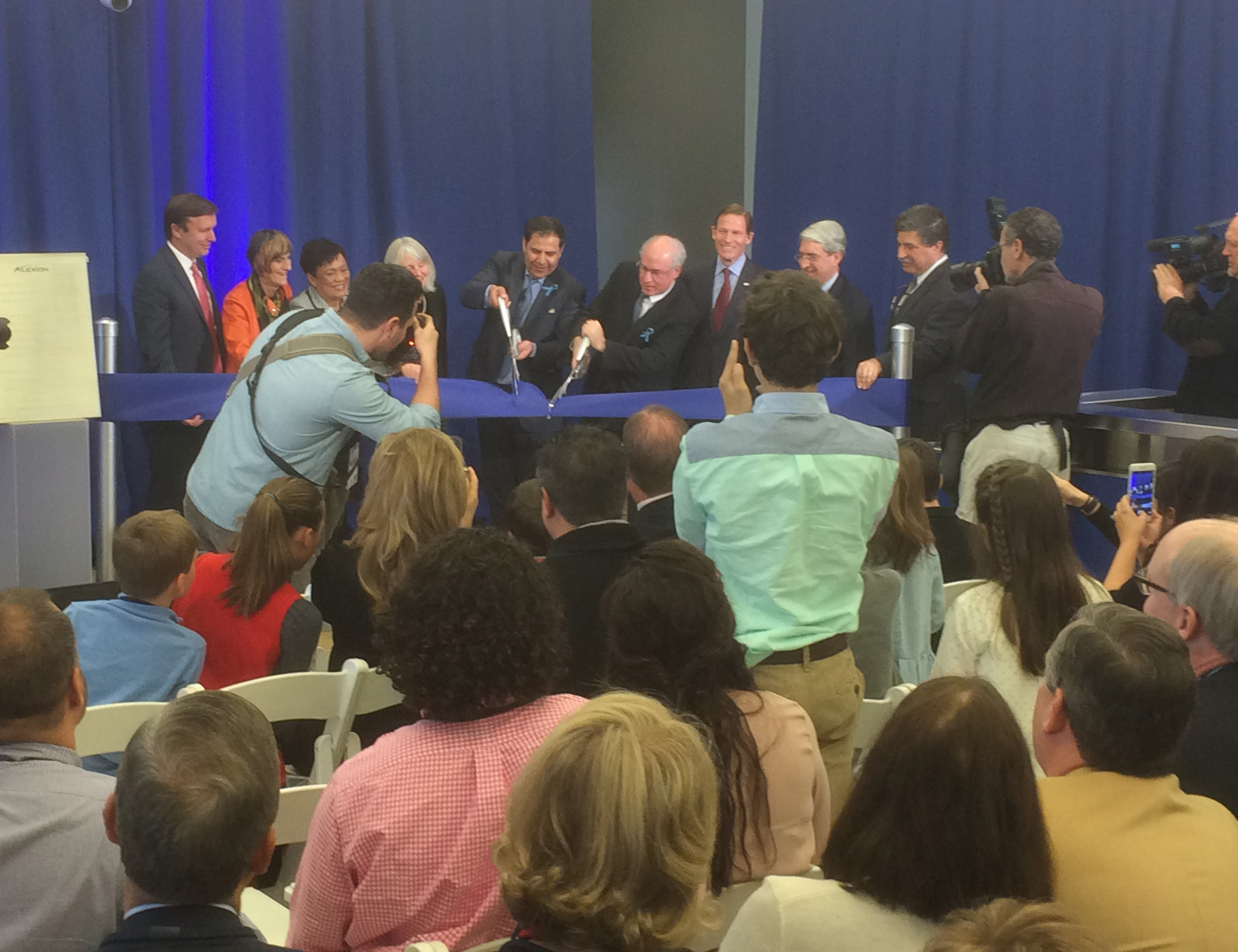
Alexion CEO David Hallal, Mayor Toni Harp and University President Peter Salovey gathered in the biotech’s new headquarters at 100 College St. on Monday morning to celebrate the company’s return to the Elm City.
The ribbon-cutting ceremony occurred one month after the biotech began relocating its 1,200 employees to New Haven after a 16-year stint in Cheshire, Connecticut, where the company moved for more lab space. At the event, Harp praised the biotech — one of the most profitable in the nation — for improving New Haven’s standing as an attractive destination for biotech companies. These companies value the presence of similar ones for collaboration as well as universities for talent. Harp added that the 100 College St. complex — 14 stories housing 500,000 square feet of laboratory and office space — is the first major project in the city’s attempts to revitalize the neighborhoods between Downtown and the city’s outskirts. In the past six decades, few residents and businesses have occupied Alexion’s current neighborhood, Harp said.
“New Haven is a model of progressive urban development of national significance,” Harp said. “In this economy, few communities nationwide have had this opportunity for transformative development and investment.”
Over the next month, Alexion will finish relocating its employees to the new headquarters. These employees will contribute to the city’s economy by increasing the demand for shops, restaurants and entertainment, Harp said.
Harp added that her administration aims to prepare young Elm City residents to take advantage of the high-wage biotech jobs at Alexion. Last May, Harp launched a Bioscience Career Ladder with Gateway Community College and Southern Connecticut State University to guide collegiate students into science careers.
Beyond New Haven’s boundaries, the entire state will benefit from Alexion’s continued success, said Catherine Smith, commissioner of the Connecticut Department of Economic and Community Development. Smith added that the company will create roughly 200 more high-tech jobs in the state and that, as a multinational company, it mobilizes talent from around the world for its operations.
The pharmaceutical company, which Leonard Bell MED ’84 founded in Science Park in 1991, tallied $2.6 billion in revenue last year. The bulk of this — roughly $2.59 billion — came from Soliris, Alexion’s trademark drug which treats the fatal blood-destroying disease paroxysmal nocturnal haemoglobinuria.
To support Alexion’s continued growth and that of other biotechs, the state will create a $200 million fund to support research labs, Smith said. She added that other research institutions in the state, including those at Yale and the University of Connecticut, will benefit from this fund.
“We created the bioscience fund to ensure that the great work being done in the research labs here are being funded and given that seed money to get those ideas going,” Smith said. “Biotech takes a long time to deliver on those services.”
Connecticut Rep. Rosa DeLauro praised the humanitarian focus of Alexion’s work. She called attention to the several young children in the audience — including one as young as nine months old — who have benefited from therapies developed by Alexion.
DeLauro, a near 30-year survivor of ovarian cancer, also spoke about struggling through an illness. She said although rare diseases often go unrecognized, the children suffering from them deserve attention.
“These youngsters here today are not invisible,” DeLauro said. “They are people. And we’ve given them a second chance. There isn’t a greater goal than what [Alexion is] all about.”
Monday was Rare Disease Day worldwide.







